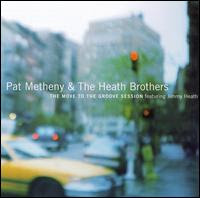 After I'd finished Franz Wright's Walking To Martha's Vineyard (2003), I immediately started over and read it again. Something about the collection bothered me. I'd read a handful of Wright's poems before, some from this book, and I had found most moving and thought provoking, but as I read the whole book the first time, I couldn't shake the fact that this volume had earned Wright a Pulitzer Prize, and I just couldn't see why. However, after a second helping, I began to realize that the first time through I was focused on the pieces here that seem to rely mostly on image for their effect on the reader, and I just wasn't always sure what that effect was supposed to be. During the second reading, I noticed that there is a narrative here that is like real life: in one moment disjointed, in another fluid, days and nights filled with startling moments of sadness and joy, thrill and disgust. Walking to Martha's Vineyard is also an inspiring volume of poems, not because one reads them and feels vaguely better, but because one senses that the poet has encountered grace, a frightening and beautiful communion with God.
After I'd finished Franz Wright's Walking To Martha's Vineyard (2003), I immediately started over and read it again. Something about the collection bothered me. I'd read a handful of Wright's poems before, some from this book, and I had found most moving and thought provoking, but as I read the whole book the first time, I couldn't shake the fact that this volume had earned Wright a Pulitzer Prize, and I just couldn't see why. However, after a second helping, I began to realize that the first time through I was focused on the pieces here that seem to rely mostly on image for their effect on the reader, and I just wasn't always sure what that effect was supposed to be. During the second reading, I noticed that there is a narrative here that is like real life: in one moment disjointed, in another fluid, days and nights filled with startling moments of sadness and joy, thrill and disgust. Walking to Martha's Vineyard is also an inspiring volume of poems, not because one reads them and feels vaguely better, but because one senses that the poet has encountered grace, a frightening and beautiful communion with God.
I tried reading A Coney Island of the Mind by Lawrence Ferlinghetti (1958) more years ago than I care to admit, but I know it was when I was quite young. I never finished it then, and ironically, my youth probably worked against me. I say this is ironic because the book is filled with the brashness and vigor of youth. The poems rebel against many things, but they are not about rebellion for rebellion's sake. The bring the reader to rethink the world in lines that are as fresh today as when they were first read (or heard), and even if one does not come to the same philosophical place as Ferlinghetti, one does have to realize that powerful thoughts have fueled these verses. Ferlinghetti has no problem dropping in lines from other poets, often in parody (especially of Eliot). The poet is "constantly risking absurdity," but these poems aren't act, but a call to action.
 Have started reading an interesting book by Ted Kooser, Winter Morning Walks: 100 Postcards to Jim Harrison. These poems were written during Kooser's convelescence from his chemotherapy, and so far they are a bit different from the crafted poems of his other books. These seem to be just what they say they are: notes on postcards. But oh what notes! Most of these poems don't drop the kind of bombs I found in Kooser's Delights and Shadows, but they hit with short jabs, image and mood driving action that takes place mostly within.
Have started reading an interesting book by Ted Kooser, Winter Morning Walks: 100 Postcards to Jim Harrison. These poems were written during Kooser's convelescence from his chemotherapy, and so far they are a bit different from the crafted poems of his other books. These seem to be just what they say they are: notes on postcards. But oh what notes! Most of these poems don't drop the kind of bombs I found in Kooser's Delights and Shadows, but they hit with short jabs, image and mood driving action that takes place mostly within.









